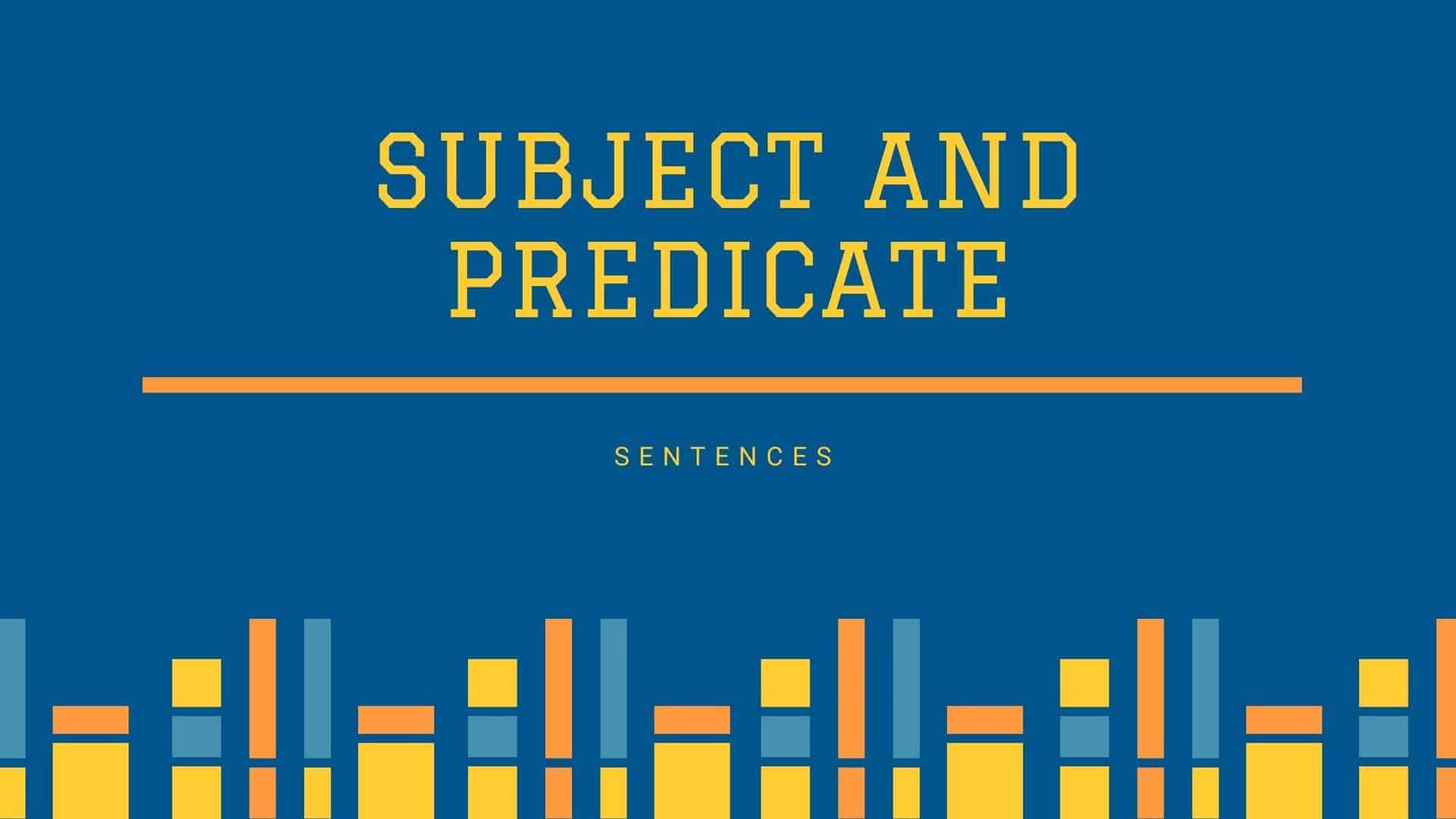What is Subject and Predicate?
Sentences and clauses have two parts – “Subject” and “Predicate”. The subject of a clause or sentence is a noun or a pronoun. Sometimes a phrase or clause or any other grammatical element also function as a subject of a sentence. When a phrase or clause function as a the subject, the subject is called a noun phrase or a noun clause. In all the cases, the subject controls the action of a verb.
The predicate is made up of at least one finite verb. The subject of the sentence performs the action of the verb .
Examples of Subject and Predicate:
- She plays. (“She” is the Subject and “plays” is the Predicate)
- She and her friend play every day in the garden. (“She and her friend” is the Subject and “play every day in the garden” is the Predicate).
The Subject
As already mentioned ,the subject is made up of at least one noun (a person or thing), a pronoun or any grammatical element acting as a noun (infinitive, gerund, noun phrase or noun clause) that performs the of a verb in the sentence. Usually the “Subject” is in the beginning of the sentence.
Example sentences:
- Horses run very quickly.(in this sentence, “horses”, a noun is the subject)
- He did not want to go to the school.(in this sentence, “he”, a pronoun, is the subject).
- To study is the only thing in his mind. .(in this sentence, “to study”, an infinitive, is the subject).
- Running is a good exercise.(in this sentence, “running”, a gerund, is the subject).
- The old house was for sale. .(in this sentence, “the old house”, a noun phrase, is the subject).
- What the boy said made everyone angry. .(in this sentence, “What the boy said “, a noun clause, is the subject).
Simple subject or Subject-word
We see that a subject may contain one or several words. When the subject has several words. one word in it is the most important one. This word is called a Simple subject or a Subject-word. A Simple subject is always a noun, pronoun or a group words that does the work of a noun. Thus in the first four examples, the Subject-words are Horses(a noun), He ( a pronoun), To study (an infinitive), and Running(a gerund) respectively.
The Predicate
The Predicate of a sentence is the part that describes the action of the “Subject”. The Predicate must necessarily contain a finite verb. Besides the finite verb, the predicate can also contain (not always) participles, objects, complements and modifiers. As such predicates can be simple predicate, compound predicate and complete predicate.
Simple predicate
A simple predicate is the word that shows the action in the sentence. In simple predicates the verbs are single words or a short verb phrase.
Examples of simple predicates in sentences:
- I slept.( Simple predicate. In this sentence, “slept” is the predicate. It is only a single finite verb, in simple past tense).
- We saw the cat.(In this sentence, “saw” is the simple predicate).
Compound Predicates
A Compound Predicate has two or more verbs joined by a conjunction.
Examples:
- Mary did homework and watched TV. (Did homework and watched TV is the compound predicate)
- I like fish but hates meat.( like fish but hates meat is the compound predicate)
Complete predicate
Complete predicate is the verb that shows the action and also all the phrases that complete the thought. In other words, a complete predicate is everything in the sentence except subject.
Examples:
- I am seeing the girl for the first time.
- Jill went to bring a pail of water.
In the above sentences, the underlined portions are complete predicates.

Thanks a ton! This is definitely an terrific English grammar web-site!